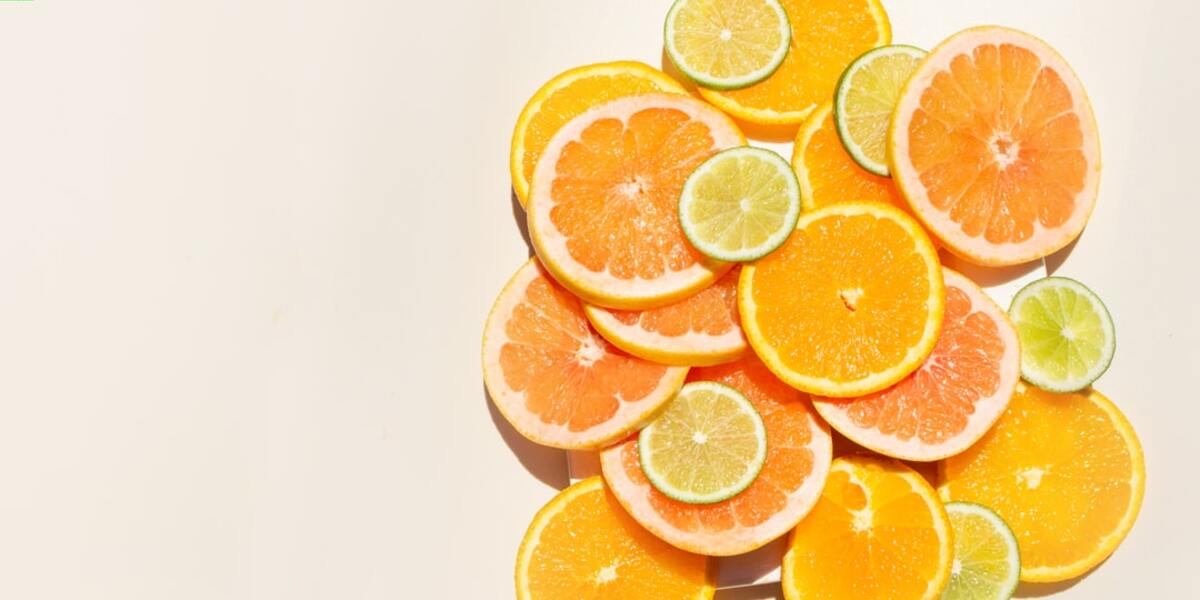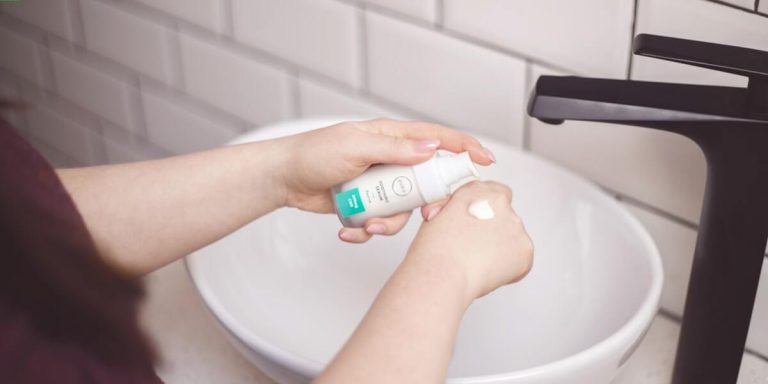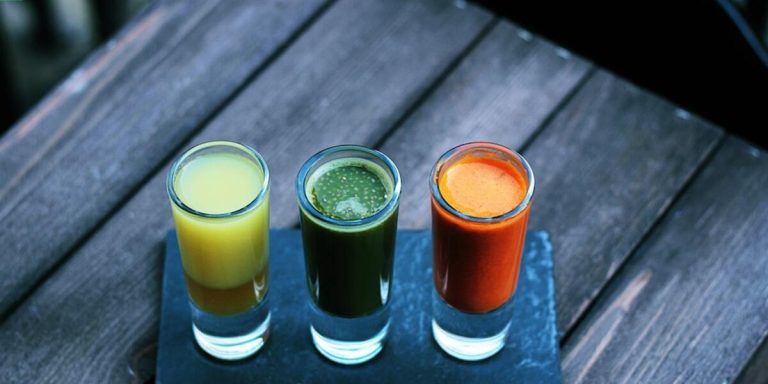Can Vitamin D Help Hair Growth? Unraveling the Truth Behind The Science
Hair loss often leads to significant emotional stress and reduced self-confidence. Can Vitamin D promote hair growth? This vital nutrient supports our overall health, including bone structure and immune function. Recent research suggests that it may also stimulate new hair follicle development.
Unraveling this intriguing connection is the crux of this article. Are hair care product claims overwhelming you with incredible results that rarely materialize? Don’t worry! We will delve into the scientific facts about Vitamin D’s potential impact on your hair. Stay with us as we decode how incorporating ‘the sunshine vitamin‘ into your routine could transform your strands and improve overall scalp health.
Did you know?
Did you know that according to the National Institutes of Health, Vitamin D can create new hair follicles where none existed before? This could potentially improve hair density and stimulate greater hair growth.
The Role of Vitamin D in Promoting Healthy Hair Growth
Vitamin D, often called the “sunshine vitamin,” plays a critical role in promoting healthy hair growth. This fat-soluble nutrient primarily aids calcium absorption to maintain strong bones and teeth. Moreover, Vitamin D significantly affects your hair health.
Vitamin D levels have a close connection to hair loss conditions like alopecia areata and pattern baldness, research shows. The vitamin stimulates new and old hair follicles. Insufficient Vitamin D can prevent the generation of new hairs, potentially causing thinning or balding.
Low levels of this crucial vitamin can cause severe forms of alopecia and may even inhibit the proper proliferation of follicle cells – essential for the hefty locks we all desire. To enhance your mane naturally, consider ensuring you get enough daily sunshine exposure or consume foods fortified with this wonder nutrient.
Understanding How Vitamin D Impacts Hair Follicles
Vitamin D, considered the “sunshine” vitamin, is critical for numerous physiological functions. It also plays a significant role in maintaining healthy hair growth and preventing hair loss—let’s learn how.
The human skin synthesizes Vitamin D when exposed to sunlight. Its primary function involves aiding calcium absorption necessary for bone health; however recent studies have discovered its important effects on our follicles—the tiny pores in the scalp from where our hairs grow.
Vitamin D receptors in the body interact with vitamins from sun exposure or dietary supplements. Upon activation, they promote the development of new and old cells, including those that produce hair within the scalp’s skin layers. Essentially, they act as a trigger that turns on the anagen phase and rejuvenates active hair growth, resulting in denser locks.
A deficiency can lead to changes within these cycles causing more strands to enter their resting stage prematurely resulting fewer growing hairs noticeable by thinner appearance overall.
Low levels of this crucial nutrient can lead to conditions like Alopecia Areata, which is an autoimmune disorder that causes sudden circular bald patches on the head. This shows the close relationship between Vitamin D status and hair health.
Scientific Evidence Linking Vitamin D to Increased Hair Production
Research suggests a strong correlation between Vitamin D and hair growth, an intriguing fact particularly for those wrestling with hair thinning or loss. Recent studies underscore the importance of this vitamin in creating new follicles- tiny pores in the scalp where new hairs can grow.
Vitamin D, often known as “sunshine vitamin,” is essential to many body functions. Our bodies naturally produce it when our skin exposed to sunlight. It’s also found in certain foods such as fatty fish, beef liver, egg yolks and fortified dairy products.
Scientifically speaking, Vitamin D promotes healthy hair growth through three key mechanisms:
1) Follicle formation: A 2018 study published by PLOS One indicates that mice deficient of Vitamin-D receptor have impaired fur/hair development because these receptors play a crucial role in forming new follicoles from which hairs grow.
3) Vigor maintenance: Further studies pointed out its role not just initiating hair growth but also maintaining vigor over time; making sure your threads thrive instead merely surviving!
Key Vitamins and Nutrients That Support Hair Growth Alongside Vitamin D
Vitamin D, often referred to as the ‘sunshine vitamin’, plays a key role in supporting hair growth. Not only does it help maintain strong bones, boost the immune system, and regulate heart health, but it also promotes healthy hair growth.
Vitamin D stimulates new and old hair follicles, research has established. A deficiency in this nutrient can cause problems like alopecia—an autoimmune disorder characterized by patchy bald spots on the scalp—underscoring its importance for scalp health.
To attain glorious locks, you need to do more than increase your Vitamin D intake. Consuming key nutrients is also crucial for optimal hair growth. Include the following vitamins in your diet for their nourishing properties on skin cells, which benefit your hair quality:
- B Complex (including Biotin)
- Vitamin A
- Vitamin E
Combining these four powerful vitamins can strengthen existing strands and promote new growth.
The Synergy Between Biotin, Iron, and Vitamin E for Optimal Hair Health
Vitamin D alone doesn’t ensure the rapid growth and strengthening of hair. A mix of essential vitamins, notably Biotin, Iron, and Vitamin E, provides a supportive boost to hair health due to their significant roles in hair rejuvenation.
Biotin or vitamin H plays an imperative role in protein synthesis which includes keratin – the building block primarily responsible for thickening our tresses from within. Inadequate biotin levels often correlate with slower hair growth and weaker strands prone to breakage.
Iron follows up next on this potent trio list that amplifies healthy hair development capabilities. This vital mineral ensures optimal delivery of oxygen via red blood cells throughout our body INCLUDING the scalp region ultimately fostering healthier follicles conducive to steady growth patterns.
Lastly but equally significant in its contribution is Vitamin E whose antioxidant properties guard against oxidative stress damage caused by free radicals preventing premature graying besides promoting impressive strand length retention consistently over time.
Omega-3 Fatty Acids: An Essential Component for Lush Locks
Omega-3 fatty acids work hand-in-hand with Vitamin D to promote healthy hair growth. They reside in the scalp’s cells and exist in the natural oils that maintain scalp and hair hydration, contributing to a lustrous head of hair.
Include Omega-3 fatty acids in your diet to ensure hair follicles receive the necessary nutrients for strong and healthy growth. These fatty acids provide vital nourishment and support the regular, peak functioning of hair growth processes. They also aid efficient nutrient absorption, crucial for robust new hair growth.
Salmon, mackerel, walnuts, chia seeds, and flaxseeds are rich in omega-3 fatty acids and easily fit into various lifestyles. For vegans or vegetarians seeking strong hair without dietary conflicts, algae-based supplements offer a rich source of these beneficial nutrients.
Omega-3s and vitamins like vitamin D have been shown to stimulate the production of proteins linked to healthier hair. They reduce the frequency of split ends with their strengthening properties and enhance shine by providing sufficient hydration through their oil content. Many hail this combination for these reasons.
Addressing Deficiencies: How Insufficient Vitamin D Levels Affect Your Hair
Understanding the connection between Vitamin D and hair health is crucial for realizing how deficiencies might affect your hair. Advances in scientific knowledge show that vitamin D is vital for maintaining healthy hair growth. Insufficient levels of this essential nutrient directly link to conditions like alopecia and other types of hair loss.
Vitamin D provides benefits beyond bone strength and immune support. Research from 2023 shows that vitamin D helps create new follicles—tiny pores where new hair can grow, further cementing its role in “Hair Growth Vitamins.” Insufficient levels can lead to dormant or undernourished follicles and thinning hair over time.
Additionally, sufficient supply allows for effective absorption other vital nutrients like iron – which also significantly contribute towards healthier tresses- thus emphasizing the ripple effect ensuing from dietary imbalances caused by inadequate intake.
With constant evolving science around us today nudges you to ensure fulfilling these nutritional requirements either through sun exposure (the most natural source) or supplements if needed; after all who wouldn’t want their crowning glory flourishing!
Warning Signs of Low Vitamin D Related to Thinning or Loss of Hair
Vitamin D is an essential nutrient that plays a key role in hair growth, along with other body functions. Now, let’s iron out how this vitamin can influence your crowning glory.
Inadequate vitamin D levels are often linked to alopecia, or hair loss. This condition occurs when the immune system attacks hair follicles, leading to bald patches on the scalp and other parts of the body. It isn’t necessarily permanent but requires immediate attention. Studies have pointed towards low vitamin D concentrations in alopecia patients, indicating its potential relationship with healthy locks.
Signs of a deficiency may also include slow-growing or thinning hair strands. Hair cycles through three phases:
- Growing (anagen)
- Resting (telogen)
- Shedding (catagen)
Insufficient levels of this crucial sun-derived vitamin might extend the telogen phase, leading to slower growth and eventually thin, weak tresses over time.
Thirdly, excessive fallout during combing or washing may signal a deficiency in ‘sunshine’ vitamins. “Dermatology Practical & Conceptual” published a study revealing significantly lower serum Vitamin D levels in women aged 18-45 with diffuse AA-type female pattern hair loss than in controls. Deficient quantities could therefore contribute to extra strands on your brushes!
Strategies for Boosting Your Body’s Natural Absorption of Vital Nutrients
Hair loss and poor hair growth are often linked to a deficiency in Vitamin D, which plays a crucial role in new follicle creation. Hair follicles are tiny pores where new hairs sprout, and insufficient Vitamin D can impair this process. To promote healthier hair, consider the following strategies to enhance nutrient absorption:
Incorporate foods rich in essential nutrients into your daily diet to improve your body’s ability to absorb vital nutrients for healthy hair, such as Vitamin D. Include:
- Fatty fish (e.g., salmon, trout) for their high Vitamin D content
- Egg yolks and cheese to help meet nutritional needs
2. Spend Time Outdoors: Sunlight exposure may be a free source of vitamin D which helps stimulate skin receptors that produce more vitamins required for optimal health status including those linked with proper hair development.
Lastly, consider taking dietary supplements fortified with the right quantities for your needs. Always seek professional advice from healthcare experts and get necessary tests before starting on any supplements. Avoid excessive intake to prevent toxicity, which can harm your wellness rather than support better scalp condition and promote faster hair growth.
Conclusion
Science indicates that vitamin D can play a significant role in hair growth. Remember, no single nutrient acts as a magic potion for luscious locks since hair growth is influenced by various factors. However, ensuring you have sufficient vitamin D levels may boost your hair health.
Discover Hair Growth Vitamins on our website, where you’ll find valuable resources that explain how they work, detail their numerous benefits, and provide scientific insights. Dive deep into understanding what fuels optimal hair health!







